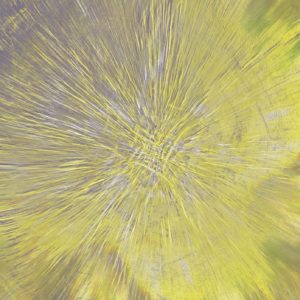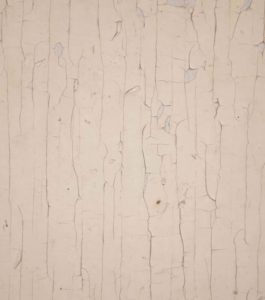The Road Home
by Rumi º
An ant hurries along a threshing floor with its wheat grain,
moving between huge stacks
of wheat, not knowing the abundance all around. It thinks its
one grain is all there is to
love. So we choose a tiny seed to be devoted to. This body,
one path or one teacher. Look
wider and farther. The essence of every human being can see,
and what that essence-eye takes
in, the being becomes. Saturn. Solomon! The ocean pours
through a jar, and you might say it
swims inside the fish! The mystery gives peace to your
longing and makes the road home home.
—
º From The Soul of Rumi
Translated by Coleman Barks
Home is where the heart is” says Pliny the Elder. Hence in order to find one’s home one must know one’s heart, and to be at home is to rest where one’s heart rests. But in Coleman Barks’ translation of Rumi’s poem, “The Road Home,” interest sits on the path towards discovery and union with the heart. Here Rumi seems to be saying that one may also find the journey of finding one’s heart, homey. In this commentary I am concerned with how, according to Rumi, one recognizes the path, which can be a home away from home, towards the heart’s abode.
The first verse begins with a vivid and mundane image, “an ant hurries along a threshing floor with its wheat of grain,” and this image is immediately recognizable and relatable. Our means of nurturing ourselves, after all, are often carried out in a busy manner. Perhaps because to operate successfully in a hurry demands a mechanical focus that has neither room for delay or dally. Thus in order to have one’s affair on the quick lane, one minds one’s “wheat grain” and nothing else. Anything else is delay and dally. But as readers we are not the hurrying ant narrated. We are its observers, and we soon realize that the ant is “moving between huge stacks / of wheat,” which makes us wonder why it moves with the little it carries as if the grain is scarce. Naturally, we also wonder about what it makes of the stacks surrounding it. But we soon learn that our ant is unaware of “the abundance all around” it and thus “thinks its / one grain is all there is to / love.”
This understanding of the limited perception of the ant would probably affect readers differently. Perhaps some may find the situation hilarious––poor silly ant! Or perhaps one may find the situation exasperating––why is the ant made to think there is little when there is plenty? Or one might just think, who cares? It is only an ant and it really has nothing to do with me. It seems, however, that one could be wrong to pity the ant. As it is very likely that the ant probably sees exactly what it needs to see and thus caring for its grain as it does and living at the capacity it does, could possibly be the best state of living for it. In which case the ant is at home in its routines of life.
So too, it might also be unnecessary to become angry on behalf of the ant. A situation I like to identify as a S.P.E.W. effort––If you have gone through Harry Potter you know that S.P.E.W. is a philanthropy project founded by Hermione Granger in chapter 14 of Harry Potter and the Goblet of Fire. Hermione was determined to save the house-elves, who are domestic natured, owned by families and passed down through generations. Hermione felt this was not right and wanted to deliver the elves from their masters, some of whom were quite evil. The problem, however, was that except for one elf, all the others preferred their position and did not want anything to do with Hermione’s ideas of freedom. In fact, they found her suggestion to be insulting and at a varied distance from what they considered ideal. But because Hermione could not see how anyone could possibly want to serve, and even at times those who were undeserving, and also take pleasure in it, she disagreed with the house-elves and worked on saving them in spite of themselves. Thus creating disharmony amongst the elves and encouraging their dislike and ill treatment of her and her friends. In this way, it may not be best for one to try to teach the ant another way of living as the insect seems to be already dancing to the beat of its heart.
But what about the reader who thinks it has nothing to do with her? It seems to me that such perspective is closest to the ant’s, without meaning to be so. For though the ant’s nature is probably fitting to a narrower way of discerning and living, is it fitting for the one who is not an ant? Is it fitting for the one who can see the stacks of wheat and could also learn how to produce more wheat when there is none, to be narrow in her way of examining and practicing life? I think this is perhaps one of the points the poem tries to establish. Which is that the ant’s way, though perhaps fitting for the insect, is not the criterion for the human being. Thus the ant has not the ability to see the stacks of wheat, but those who can are probably not meant to “choose a tiny seed to be devoted to.”
The second part of the poem is as abstract as the first part is imaginable. Unlike the ant whose operation seems owning to an instinctual programing rather than a conscious act, the second part of the poem falls into a realm of will and choice where one can “Look / wider and farther.” And see abundance of wheat stacks and be able to understand that it is unnecessary to substitute the portion for the whole, for one is not an instinctual insect but a human being whose function is much more complex. For “The essence of every human being can see, and what that essence-eye takes / in, the being becomes.” Be it as awe inspiring as “Saturn” or as wise and wealthy as “Solomon.”
Where the human’s heart rests differs from where the insect’s does. Knowing the human heart requires more effort, is perhaps the reason that the poem gets more complex in the last lines: “The ocean pours / through a jar, and you might say it / swims inside the fish!” And this is precisely the reason why I hesitated to write this commentary. I do find Rumi challenging to comprehend. But what is the point of life if not to attempt writing commentaries on seemingly simple words that nevertheless puts one’s intellect into a nice whirlwind? So if you too are wondering what “The ocean pours / through a jar, and you might say it / swims inside the fish!” means, I like to say: ‘You are not alone, friend. I too am wondering what this means, so cheers!’
And yes, I must admit that I am a little relieved that the lines are followed by “The mystery gives peace to your / longing and makes the road home home.” Not because these lines are any clearer to me, but because it defines that which it speaks of as a “mystery” which is consoling to my lack of understanding.
—
Jane A. Odartey




In this poem, Rumi is encouraging us to recognise that how great it is to be a human. A human can see wider and farther. A human can become what he wants to be. However, he also reminds us about our limitations. The ocean pours through the jar, yes we got access to whole ocean but we get it through our consciousness that is like a jar, small and slow. The whole ocean is present inside us but we get it in drops. Loads of sabr(patience) is required in this process. Don’t become impatient, this travel itself is the destination.
I really enjoyed reading your take on the poem. Thanks for writing! ^_^